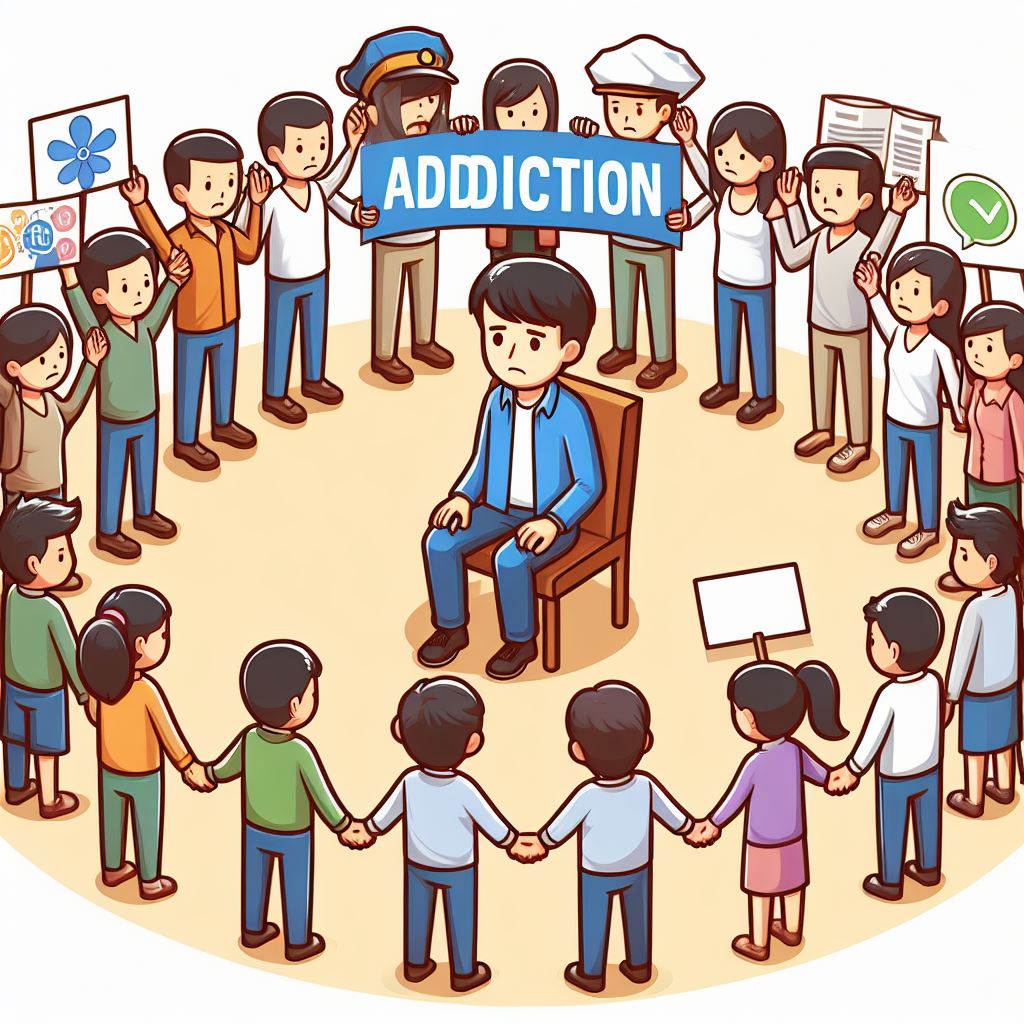Understanding why punishment alone doesn’t effectively stop addiction requires delving into the complex interplay of psychological, neurological, and social factors that underpin addictive behaviors. In this exploration, we’ll dissect the nature of addiction, the mechanisms of punishment, and why punitive measures often fall short in addressing substance abuse and other addictive behaviors.
I. Defining Addiction
Addiction is a multifaceted phenomenon characterized by compulsive engagement in rewarding stimuli despite adverse consequences. It’s not limited to substance abuse; behaviors like gambling, gaming, and even excessive internet use can also manifest as addictive disorders. The American Psychiatric Association’s Diagnostic and Statistical Manual of Mental Disorders (DSM-5) categorizes addiction under the broader umbrella of Substance Use Disorders (SUDs).
Key components of addiction include:
- Compulsion: The overwhelming urge to engage in the addictive behavior.
- Loss of Control: Difficulty in regulating the behavior, leading to continued engagement despite attempts to stop.
- Negative Consequences: Adverse effects on various aspects of life, such as health, relationships, and work.

II. Understanding Punishment
Punishment, in the context of addiction, typically refers to negative consequences imposed on individuals engaging in addictive behaviors. These consequences can be legal (e.g., fines, imprisonment), social (e.g., ostracism, stigma), or personal (e.g., guilt, shame).
Theoretically, punishment operates based on principles of operant conditioning, a psychological concept proposed by B.F. Skinner. According to this theory, behavior is influenced by its consequences. Punishment aims to decrease the likelihood of a behavior recurring by associating it with aversive outcomes.
III. The Limitations of Punishment in Addressing Addiction
While punishment may deter certain behaviors in the short term, it often fails to produce lasting changes in addictive behaviors. Several factors contribute to this ineffectiveness:
- Neurobiological Mechanisms:
- Addiction involves alterations in brain regions associated with reward, motivation, and decision-making, such as the mesolimbic dopamine system. Chronic substance abuse rewires these neural circuits, leading to heightened cravings and diminished impulse control.
- Punishment primarily activates brain areas associated with fear and stress, such as the amygdala. However, it doesn’t directly address the underlying neurobiological changes driving addictive behaviors.
- Psychological Factors:
- Addictive behaviors are often driven by underlying psychological issues, such as trauma, depression, or anxiety. Punishment fails to address these root causes and may exacerbate feelings of distress, leading individuals to seek solace in addictive substances or activities as coping mechanisms.
- Moreover, punitive measures can evoke defensive reactions, such as denial and resistance, hindering the individual’s willingness to acknowledge their problem and seek help.
- Social Context:
- The social stigma associated with addiction can further isolate individuals, making them less likely to seek support or adhere to treatment. Punitive responses, such as criminalization of drug use, contribute to this stigma and create barriers to accessing healthcare and support services.
- Additionally, punitive measures often disproportionately affect marginalized communities, exacerbating social inequalities and hindering efforts to address addiction from a public health perspective.
- Behavioral Patterns:
- Addictive behaviors are reinforced by the immediate rewards they offer, such as euphoria or temporary relief from distress. Punishment, on the other hand, operates on delayed and often uncertain consequences, diminishing its effectiveness in competing with the immediate gratification of addictive behaviors.
- Furthermore, individuals struggling with addiction may prioritize short-term relief over long-term consequences due to impaired decision-making and prioritization skills associated with addiction.
IV. Alternative Approaches to Addressing Addiction
Given the limitations of punishment in addressing addiction, alternative approaches that emphasize harm reduction, rehabilitation, and support have gained traction:
- Harm Reduction: Rather than focusing solely on abstinence, harm reduction approaches aim to minimize the negative consequences associated with addictive behaviors. This may involve strategies such as needle exchange programs for individuals who inject drugs or providing safe consumption spaces to prevent overdose deaths.
- Treatment and Rehabilitation: Evidence-based treatments, including cognitive-behavioral therapy (CBT), motivational interviewing, and medication-assisted therapy, address both the behavioral and neurobiological aspects of addiction. These interventions help individuals develop coping skills, address underlying psychological issues, and manage cravings.
- Community Support: Peer support groups like Alcoholics Anonymous (AA) and Narcotics Anonymous (NA) provide a sense of belonging and understanding for individuals struggling with addiction. These groups offer mutual support, encouragement, and accountability in a non-judgmental environment.
- Public Health Interventions: Public health strategies focus on addressing the systemic factors contributing to addiction, such as poverty, trauma, and lack of access to healthcare. These approaches prioritize prevention, early intervention, and equitable access to treatment and support services.

V. Conclusion
Punishment alone is insufficient in addressing the complex and multifaceted nature of addiction. While punitive measures may serve a deterrent function in some cases, they often fail to produce lasting changes in addictive behaviors and can exacerbate social inequalities and stigma.
A comprehensive approach to addressing addiction requires a shift towards evidence-based interventions that prioritize harm reduction, rehabilitation, and support. By addressing the underlying neurobiological, psychological, and social factors driving addictive behaviors, we can promote healthier outcomes for individuals struggling with addiction and create more compassionate and effective responses within society.



